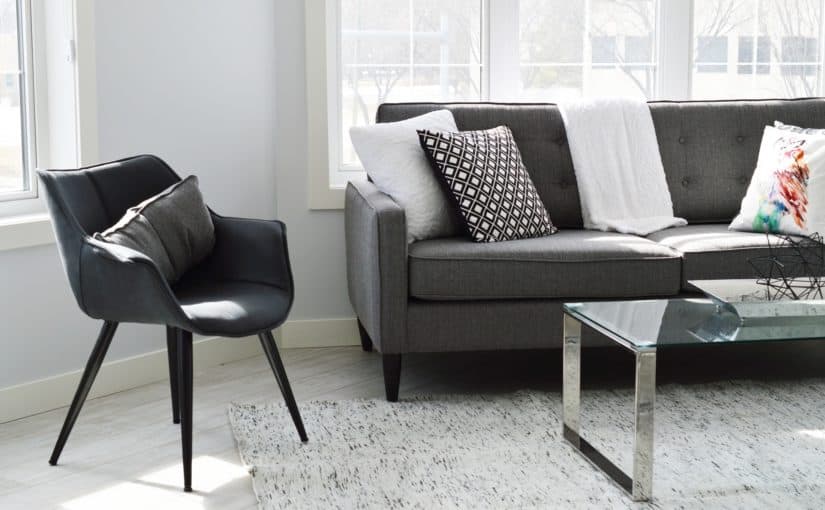The fit between you and your psychiatrist is extremely important. You could see the best psychiatrist in the world, but if you aren’t comfortable sharing personal information with them then they will not be a good psychiatrist for you. Finding a psychiatrist can be a challenge and sometimes people don’t have a choice as to who they see. Often, finding a good psychiatrist has more to do with what you are personally looking for than the psychiatrist’s expertise. Answering these 8 questions will help you find a psychiatrist who will be a good match and evaluate if you have a good fit with your current psychiatrist.
Feeling comfortable and confident with your psychiatrist can help treatment progress at a faster rate. Being open allows the psychiatrist to know what is going on so they can address it. If you are so uncomfortable with the doctor that you don’t share topics that make you feel vulnerable, or anything you think the psychiatrist “won’t like” to hear, then ask yourself if this treatment is going to be beneficial.
How to find a psychiatrist that is a good fit:
Here are 8 questions to ask yourself in evaluating the working relationship you have with your psychiatrist. These questions can also define what you are looking for BEFORE you see a psychiatrist. Your answers will determine how to find the right psychiatrist and evaluate if the doctor you see is a good psychiatrist for you.
Some of these questions may be more important to you than others. Prioritize what is essential to you to decide if you are seeing the best psychiatrist to meet your needs.
8 Questions to help determine if you are seeing the best psychiatrist:
- Do you know what the goals of your treatment are? Do you agree on the treatment goals?
- Are options for treatment explained to you? Usually, there is more than one way to achieve a goal. There are often different pros and cons for each choice.
- Are non-medication options discussed? Medication is often only one part of the treatment needed to recover.
- Are you included in deciding your treatment? Do you feel like you are a member of the team working together to improve your health?
- Do you feel your concerns are heard?
- Are you able to ask questions?
- Are you comfortable with the style of your psychiatrist? We are not talking fashion here but the way your psychiatrist approaches treatment. See the below section for a further explanation of style.
- Can you reach your psychiatrist if you need to contact them before your next appointment? Do they call you back within a reasonable amount of time?
Finding a good psychiatrist: Different styles of treatment
Different styles of treatment will work better for one person versus another. This is a very personal decision and doesn’t necessarily reflect the competence of the psychiatrist. Find someone who has a style you are comfortable with.
- You may want someone who is very direct. But that may make another person feel uncomfortable and shut down.
- Some people like a psychiatrist who is empathetic and warm whereas some prefer their psychiatrist to be a bit more removed.
- Some psychiatrists are more active and directive. They will give guidance, advice, and feedback.
- Others will be quiet and analytic, allowing you to set the pace.
There isn’t a right or wrong regarding what style makes you feel comfortable. What works for you? Answering these questions will assist in your process of finding a good psychiatrist that fits your needs.
Finding a psychiatrist: Treatment isn’t meant to always be comfortable
I am not suggesting that treatment needs to always be comfortable and that you should leave your doctor if it is uncomfortable. There is a difference between having a comfortable fit in a therapeutic relationship and the comfort of treatment.
Generally, people are coming to treatment to do hard work and have a goal in mind for how to feel better. Often times, in order to get closer to the ultimate goal, people need to get a safe distance out of their comfort zone. They need to challenge habits of behavior that are keeping them stuck. This is NOT going to be comfortable. However, at the same time that you are challenging yourself, feeling comfortable with your psychiatrist will allow you to feel more confident trying new things.
Finding the best psychiatrist for you:
If you don’t feel you are clicking with someone spend some time thinking about why. What is it that is getting in the way? Ask yourself the 8 questions above to help you define what may be missing. If you can determine what you are looking you will have an easier time finding a good psychiatrist who fits with you.
If there is something that you realize is not present in your treatment then discuss this openly with your doctor. Generally, a psychiatrist will be happy to have you taking an active role in your treatment and will be responsive to discussing what you are looking for.
Finding a psychiatrist that is a good fit for you will be worth the effort it takes!
Looking for mental health resources? Visit the Mental Health Bookstore and Resource page for great recommendations.
Don't miss another post!

Subscribe to get our latest content by email.





I’d like to thank you for your explanation about getting the best Psychiatrist. It really helped when you said that being comfortable and confident with your psychiatrist can help treatment progress at a faster rate. I agree with what you said that being open allows the psychiatrist to know what is going on with you so they can address your concern.
It made sense when you said that the best psychiatrists will want us to take an active and responsive role in our treatment. My husband told me that he’s ready to find a psychiatrist service to meet with to help him deal with his depression that surfaced about a year ago. Thanks for teaching me what qualities and practices to look for to identify a good psychiatrist!
So glad it was helpful! Once he finds the right practice for himself have him read https://drmelissawelby.com/questions-before-first-visit-psychiatrist/ so he can have as much information as possible prepared before his visit.
Thank you for your explanation of the 8 questions to finding a psychiatrist. I love the part about their style as that does help the sessions go very well instead of long drawn out sessions, wasting money not getting answers or the help needed.